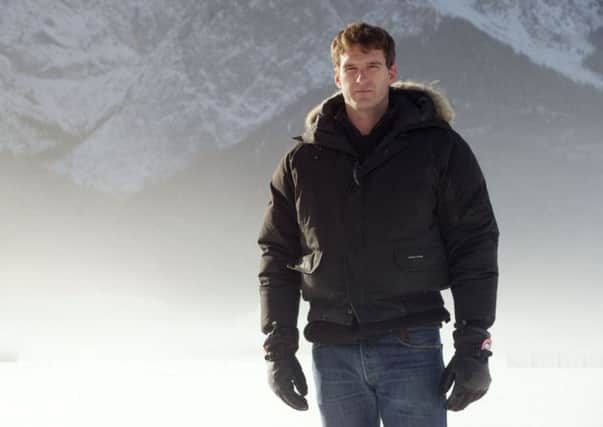One to watch: Dan Snow’s History of the Winter Olympics - BBC Two, 9pm


This is not the sort of intro you’d expect from Dan Snow’s History of the Winter Olympics (BBC2, 9pm). Crisp snow slopes and the Ski Sunday theme perhaps, but stick with it, because this one-off documentary is a compelling mix of travelogue and history lesson.
Here Snow travels across nine countries to learn more about how the Winter Games took shape.
Advertisement
Hide AdAdvertisement
Hide AdHe finds that although the Olympic ideal may involve countries coming together in a spirit of friendship, the event has frequently been affected by politics, whether it was due to Nazism or the tense rivalries of the Cold War.
Tension between East and West led to the so-called ‘Miracle on Ice’ of 1980, when the US men’s ice hockey team beat the seemingly undefeatable Soviets, and arguably culminated in the emotional Olympics of Sarajevo in 1984.
That was the year Jayne Torvill and Christopher Dean skated to victory on the strains of Bolero, and captured the imaginations of 24 million UK viewers watching at home, as well as many around the world.
However, as Snow discovers, just eight years later most of the Olympic sites had been destroyed by civil war.
Advertisement
Hide AdAdvertisement
Hide AdJayne’s comment about returning to the Sarajevo since the war is arguably the most chilling.
“We actually saw the opening ceremony stadium, huge outdoor stadium, that had now been turned into a graveyard.”
The figure skaters weren’t the only Brits to shape Winter Olympic history, as Dan explains the pivotal role Arnold Lunn played in Alpine skiing.
From Chamonix to (his old stamping ground) Oxford and beyond, Snow’s film features a collection of archive footage.
Advertisement
Hide AdAdvertisement
Hide AdThe seed of the Winter Olympics was sown with the Nordic Games, held in Sweden in 1901.
By 1924, Chamonix was the host to the first Winter Olympics, and four years later it was St Moritz’s turn, though a blizzard plagued the opening ceremony.
In the years that followed, Lake Placid (USA) hosted the Games twice; Adolf Hitler opened the 1936 Winter Olympics in Germany, while other venues have included Oslo and Lillehammer in Norway; Sapporo and Hanagno in Japan, and Canada, who hosted the prestigious event in Calgary and Vancouver.
At one point, British heroes at the Winter Olympics were a rare breed. But then came John Curry who, although suffering from verrucas at the time, won gold in the 1976 figure skating competition.
Advertisement
Hide AdAdvertisement
Hide AdFour years later came another success with Bristol’s Robin Cousins, who emulated Curry’s success, and, as the 1984 Games approached, a young duo from Nottingham took the limelight and eventually won gold in the ice dance championships.
Ten years after this win, Torvill and Dean returned to the Olympics and were awarded Bronze in the ice dance competition held in Lillehammer.
It’s anyone’s guess whether Blighty’s latest hopefuls will do as well as Curry, Cousins, Torvill and Dean before them, but at least Snow’s show should put the new athletes’ struggle into context.